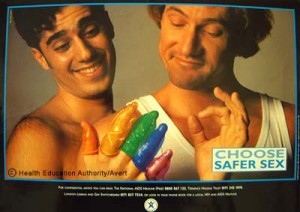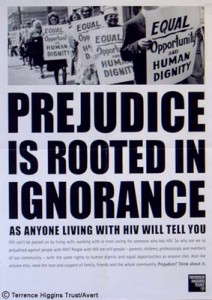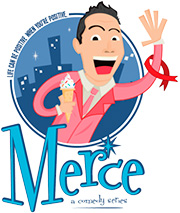Once again, the HIV disclosure debate has heated up among prevention advocates, the media, and front-line sexually active men and women just trying to get laid. It all boils down to this: should sharing your status be morally mandatory, or does having protected sex let an HIV positive sex partner off the hook?
 This time, Olympic equestrian Darren Chiacchia finds himself in the center of the controversy, and his liberty hangs in the balance. In late January Chiacchia was arrested by Florida’s Marion County Sheriff’s Office after a former sexual partner accused Chiacchia of exposing him to HIV, the virus that causes AIDS. Mr. Chiacchia, who pleaded not guilty in February, faces up to 30 years in prison under a Florida law passed in 1997 that makes it a felony for people with HIV to have sexual intercourse without informing their partners of their condition. His trial is scheduled to begin in June, his lawyer said.
This time, Olympic equestrian Darren Chiacchia finds himself in the center of the controversy, and his liberty hangs in the balance. In late January Chiacchia was arrested by Florida’s Marion County Sheriff’s Office after a former sexual partner accused Chiacchia of exposing him to HIV, the virus that causes AIDS. Mr. Chiacchia, who pleaded not guilty in February, faces up to 30 years in prison under a Florida law passed in 1997 that makes it a felony for people with HIV to have sexual intercourse without informing their partners of their condition. His trial is scheduled to begin in June, his lawyer said.
Nowhere in the charges does it stipulate that Chiacchia has unprotected sex with his accuser, who has not revealed his own HIV status. What if Chiacchia had always practiced safe sex with the accuser. Would that have been enough?
HIV disclosure laws, which exist in 32 states, are largely born out of ignorance and fear, equating the body fluids of an infected person to a lethal weapon and some even wrongly attributing HIV transmission to saliva (just ask the HIV positive man serving 30 years in Texas for spitting on a police officer).
 Ignorant lawmakers aside, I can no longer in good conscience engage in sex with someone who doesn’t know my status. Let’s just say it lowers the anxiety level. But I am in the relatively privileged position of having strong social support, and I don’t fear repercussions from others learning of my status, as many people do. For many like them, their understandable fear prevents them from disclosing. So in the absence of disclosure, I believe protecting your partner by practicing safe sex every time qualifies as “doing the right thing.”
Ignorant lawmakers aside, I can no longer in good conscience engage in sex with someone who doesn’t know my status. Let’s just say it lowers the anxiety level. But I am in the relatively privileged position of having strong social support, and I don’t fear repercussions from others learning of my status, as many people do. For many like them, their understandable fear prevents them from disclosing. So in the absence of disclosure, I believe protecting your partner by practicing safe sex every time qualifies as “doing the right thing.”
Further muddying the waters is valid new evidence that HIV positive, compliant patients may not be able to transmit the virus at all, if they have had a undetectable viral load and have been on medications consistently. In other words, there may be a pistol in my pocket, but it isn’t loaded, my darling.
No wonder sex partners, even after disclosing their status, are making a variety of choices sexually. Poz partners seeking out other poz partners exclusively (see my video blog on serosorting), negative “tops” partnering positive “bottoms” without protection (with risk estimated at 1 in 2,500), and even couples, as outlined above, that include a positive partner without a viral load making a choice to have unprotected sex.
 If you’re ignorant about safer sex guidelines and believe that you should be informed of a partner’s HIV status before you agree to kiss them, you’re too stupid to be reading my blog. Please find out more from reliable public health sources or quietly return to your Miley Cyrus CD and put off sex indefinitely. Lady GaGa has a point, after all.
If you’re ignorant about safer sex guidelines and believe that you should be informed of a partner’s HIV status before you agree to kiss them, you’re too stupid to be reading my blog. Please find out more from reliable public health sources or quietly return to your Miley Cyrus CD and put off sex indefinitely. Lady GaGa has a point, after all.
The details in the Darren Chiacchia case are too sketchy to conclude if he knowingly put his accuser at risk, or if he used protection. More will certainly be revealed if the case makes it to its June trial date without a plea bargain agreement.
I choose to disclose my status but I don’t want laws imposing it, especially when they’re enforced to play “gotcha!” with past sex partners rather than being based on rational public health policy.







